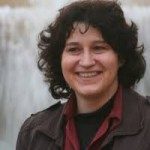Link to Pubmed [PMID] – 28008839
Med Sci (Paris) 2016 Nov;32(11):983-990
The most abundant and well-studied microbiota on the human body resides in the intestinal tract. Its impact extends the limits of the mucosal interface as it plays an essential role in systemic functions such as development of the immune system. At the level of the intestine, commensal microbes play important metabolic functions and promote the integrity of the mucosal barrier. Moreover, a large number of studies points to a role of the microbiota in intestinal regeneration both under homeostatic conditions and after epithelial damage. As intestinal regeneration is sustained by highly proliferative intestinal stem cells (ISCs), these observations raise the question of a direct impact of commensals on the activity of these cells. Key mediators of the dialog between microbes and the epithelium are the immune cells residing in the gut. Consistently, both innate lymphoid cells and macrophages activated by microbial stimuli have been shown to promote ISCs proliferation by secreting cytokines. More direct routes of communication have been described recently, either through the binding of bacterial ligands to Pattern Recognition Receptors expressed in ISCs, or through the sensing by ISCs of bacterial metabolites. In this review, we explore this stem cell-microbiota dialog and its impact on gut homeostasis.


